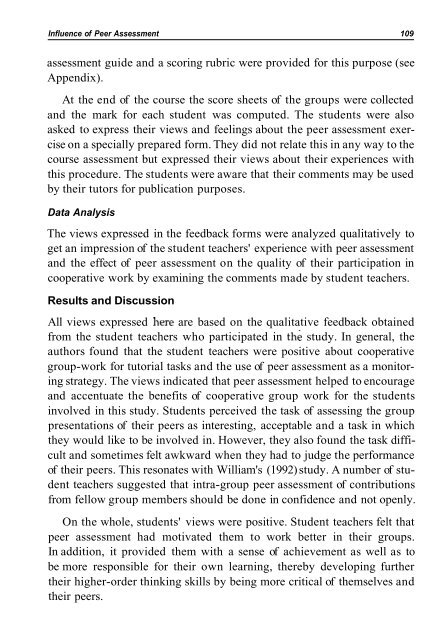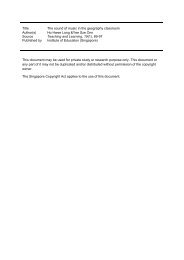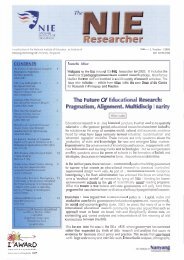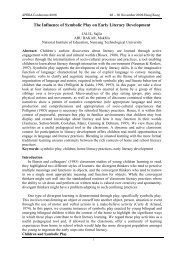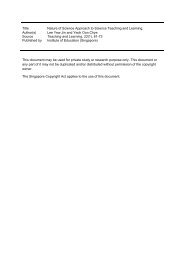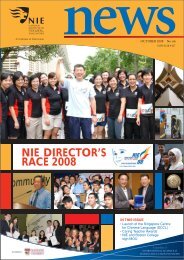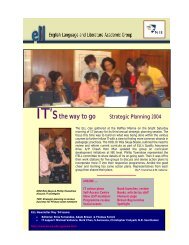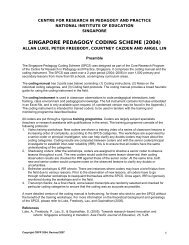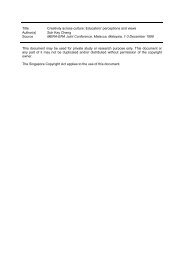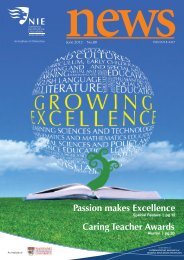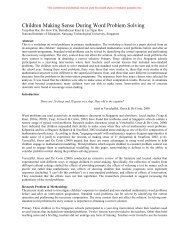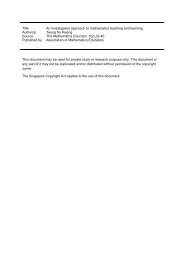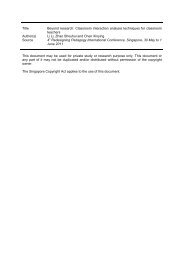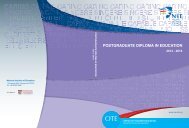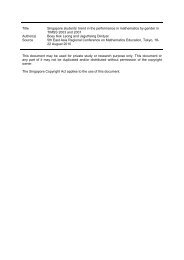Cooperative Learning - NIE Digital Repository - National Institute of ...
Cooperative Learning - NIE Digital Repository - National Institute of ...
Cooperative Learning - NIE Digital Repository - National Institute of ...
You also want an ePaper? Increase the reach of your titles
YUMPU automatically turns print PDFs into web optimized ePapers that Google loves.
Influence <strong>of</strong> Peer Assessment 109assessment guide and a scoring rubric were provided for this purpose (seeAppendix).At the end <strong>of</strong> the course the score sheets <strong>of</strong> the groups were collectedand the mark for each student was computed. The students were alsoasked to express their views and feelings about the peer assessment exerciseon a specially prepared form. They did not relate this in any way to thecourse assessment but expressed their views about their experiences withthis procedure. The students were aware that their comments may be usedby their tutors for publication purposes.Data AnalysisThe views expressed in the feedback forms were analyzed qualitatively toget an impression <strong>of</strong> the student teachers' experience with peer assessmentand the effect <strong>of</strong> peer assessment on the quality <strong>of</strong> their participation incooperative work by examining the comments made by student teachers.Results and DiscussionAll views expressed here are based on the qualitative feedback obtainedfrom the student teachers who participated in the study. In general, theauthors found that the student teachers were positive about cooperativegroup-work for tutorial tasks and the use <strong>of</strong> peer assessment as a monitoringstrategy. The views indicated that peer assessment helped to encourageand accentuate the benefits <strong>of</strong> cooperative group work for the studentsinvolved in this study. Students perceived the task <strong>of</strong> assessing the grouppresentations <strong>of</strong> their peers as interesting, acceptable and a task in whichthey would like to be involved in. However, they also found the task difficultand sometimes felt awkward when they had to judge the performance<strong>of</strong> their peers. This resonates with William's (1992) study. A number <strong>of</strong> studentteachers suggested that intra-group peer assessment <strong>of</strong> contributionsfrom fellow group members should be done in confidence and not openly.On the whole, students' views were positive. Student teachers felt thatpeer assessment had motivated them to work better in their groups.In addition, it provided them with a sense <strong>of</strong> achievement as well as tobe more responsible for their own learning, thereby developing furthertheir higher-order thinking skills by being more critical <strong>of</strong> themselves andtheir peers.


